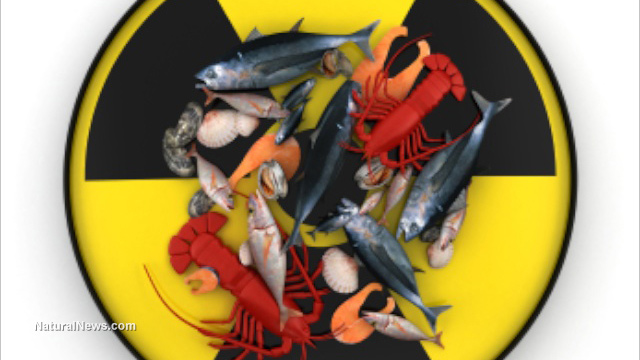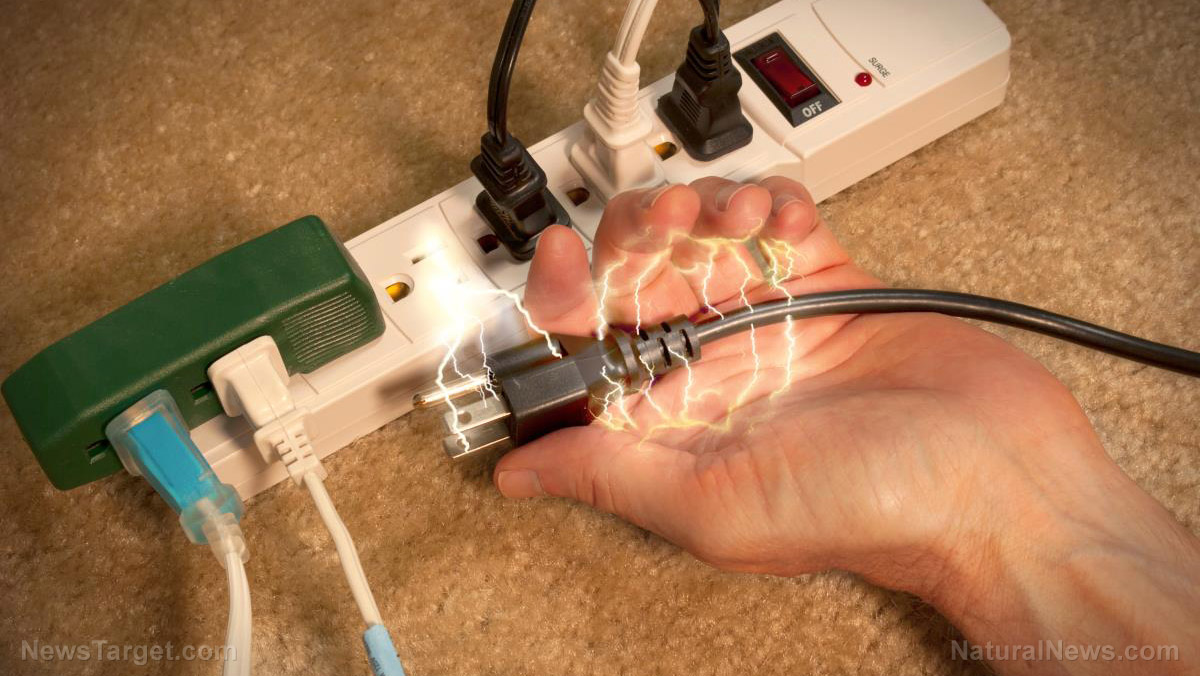Some foods trap electromagnetic radiation when microwaved: Scientists discover why grapes produce fiery plasma when “nuked”
06/19/2019 / By Tracey Watson

It’s a cool party trick, a staple at science fairs and is commonly demonstrated on the Internet: If you slice a grape almost in half and then put it in the microwave on full power, you can create a pyrotechnic spectacle as the area where the two halves of the grape meets bursts into flame.
Scientists used to believe that this phenomenon took place because the piece of skin holding the two parts of the grape together was acting as an electron conductor, but new research has uncovered a completely different explanation.
A study conducted by researchers from Trent University in Canada, published in the journal Proceedings of the National Academy of Sciences of the United States of America (PNAS), has found that this phenomenon actually occurs when microwave radiation is trapped inside cavities in the grape halves. (Related: Microwave ovens — the curse of convenience.)
An “Ielectronternet parlor trick” explained
As reported by New Scientist, microwaving grapes in this way creates a plasma. Whenever a gas is heated and ionized it creates plasma which releases electrons. Based on this fact, scientists assumed that the piece of skin holding the two halves of the grape together was acting as a conductor for these electrons and creating the fiery show. However, the new research discovered an entirely different explanation.
New Scientist explains:
Aaron Slepkova at Trent University in Ontario, Canada and his colleagues decided to study the phenomenon using thermal imaging and computer simulations. They found that the grapes were actually trapping the microwaves inside them, which led to them heating up.
The team used thermal imaging to look at whole grapes sitting separately, and found the energy was focused in hot spots at their centres. This suggests microwaves were being trapped inside a ‘cavity’ in the grape.
Thomas Volz of Macquarie University in Sydney, an expert who was not involved in this particular study, explained the process in more detail, as further reported by New Scientist:
Volz says that when the grapes are almost touching, they can exchange energy. These hot spots begin to build up between the two grapes and the microwaves interfere with each other to form a much hotter and more energy-dense spot than they would form independently.
Placing them next to each other focuses the energy into a very small spot, which is enough to ionise sodium and potassium within the grapes and ignite the plasma.
Could this trapped microwave radiation be harmful?
The scientists replicated the experiment in other items, including hydrogel beads, gooseberries, blackberries and quail eggs. Basically, any grape-sized object that contains enough water will create the same fiery effect when heated in the microwave.
This begs the question: Is microwave radiation being trapped in other foods heated in the microwave? And, does this food become harmful to humans when this process has taken place?
The researchers did not address this issue in their findings, but it is interesting to note that microwave manufacturers are quick to warn that old microwaves that leak radiation should be discarded because they become dangerous. (Related: Microwave ovens ‘fluke’ your heart while they ‘nuke’ your food – alarming studies reveal microwave frequency radiation can affect heart and blood.)
And studies have found that being exposed to radiation by standing within three feet of a microwave oven can cause blood sugar spikes, heart palpitations, electrohypersensitivity and other problems.
Learn more about the dangers of microwaves and other sources of radiation at Radiation.news.
Sources for this article include:
Tagged Under: cooking, discovery, electromagnetic radiation, EMF, food science, microwave ovens, microwave radiation, radiation, radiation science, research, scientific, weird science
RECENT NEWS & ARTICLES
COPYRIGHT © 2017 RADIATION SCIENCE



















